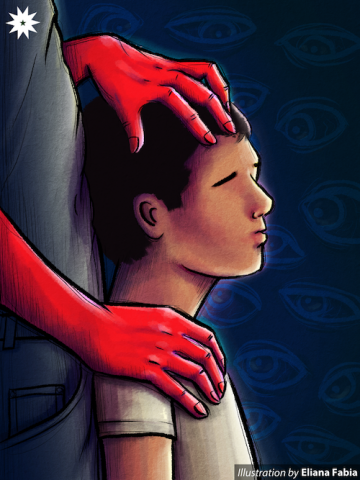On September 27 of last year, the Senate approved the final reading of Senate Bill No. 2332, which aims to increase the age for determining statutory rape among other acts of sexual exploitation of children. While the majority of the Senate rallied behind this bill—which raises the age of consent from 12 to 16 years old—a single abstention caused the public to look deeper into the terms of the legislation.

Refining an old law
At present, the Philippines has the lowest age of consent in Southeast Asia. The legislation, found in the Revised Penal Code, has been in effect for 90 years. Since the 1980s, activists have been pushing for the law to be revised.
An article from CNN cites that the set age is reflective of historical attitudes—inherited from our Spanish colonizers. While plenty of countries around the world followed the United States and United Kingdom’s move to raise the age of consent between 16 to 18 in the 1900s, the Philippines’ remained unchanged.
As implied by existing legislation, children aged 12 years are already expected to understand consent and its implications. With the bill being pushed, the Senate seeks to amend Republic Act 8353 or the Anti-Rape Act of 1997, where sexual intercourse is only recognized as statutory rape if the victim is below 12 years old.
Should Bill No. 2332 be signed into law, any adult who engages in non-consensual sexual activity with a minor 16 years old and below is automatically charged with rape.
Furthermore, its amendments include replacing the identification of a perpetrator from a “man” to any person. The victim, on the other hand, is not regarded as a woman by default but as “another person”. The bill acknowledges that anybody could be a perpetrator and a victim, regardless of gender expression and identity.
Sen. Richard Gordon, who sponsors the bill, pushes for the legislative measure to be more inclusive, stating that it is for the “protection of our girls and boys, and others with different sexual [preferences].”
A need for an urgent response to child abuse and exploitation in the country is called upon by Gordon.
In a study from Center for Women’s Resources, it was found that seven out of 10 rape victims are children. Meanwhile, United Nations Children’s Fund found that 17 percent of children in the country aged 13 to 17 have experienced sexual exploitation.
Dangers in clause
Among its provisions is a “sweetheart clause” which exempts individuals who engage in sexual activity with an age difference of not more than three years. But such an exemption does not apply to minors aged 13 years old and below.
Only Sen. Koko Pimentel abstained from voting for the passage of the bill, garnering mixed reactions from the public and his colleagues. He argued that the age difference between the victim and perpetrator must be reviewed, citing that situations wherein the perpetrator is younger than the victim are possible.
Criminal lawyer Atty. Joy Ong echoes the senator’s statement, believing that while the bill has an established purpose and objective, it is in need of refinement. With this, Ong points out theoretical scenarios that involve two minors consenting to a sexual act. “In both instances, all the persons involved cannot be charged for they are minors…So the bill should emphasize [that] fact,” she explains.
Ong also adds that with the existence of several laws related to the bill, such as the Juvenile Justice and Welfare Act, it should be emphasized that only those aged 18 and above could be charged under the said bill. “I am [for] the increasing the age of consent but exceptions should be included as to who should not be held liable,” she writes.
Public opinion
As concerns calling for the bill’s refinement and revisitation pile up, the question of its effectiveness and sufficiency in protecting children lingers.
Yra Gutierrez (I, AB-CAM) and Aeram Albo (III, BS-STT) share similar insights on the matter and agree that it is indeed necessary to raise the age of consent in the country given the growing number of cases related to statutory rape.
“If the main goal is to provide Filipino children proper care and protection from abuse, violence, and exploitation, the Legislative must take [into] consideration the [possibilities],” Gutierrez notes. Albo, on the other hand, calls for the amping up of the government’s efforts in introducing sex education, believing that providing more avenues to gain such knowledge can be a means to lowering the number of sexual abuse cases among minors.
Gabriela Women’s Party Rep. Arlene Brosas put forward her statement on the subject and regards it as a breakthrough in protecting the rights of women and children in the country. “Finally, the decades-old loophole in the law will be addressed, and we are one step away from adhering to our commitments to international conventions on women and children’s rights,” Brosas adds.
The Department of Social Welfare and Development, an office responsible for child protection, was also asked to comment on this development but has yet to respond.
As of December 2021, the bill has been ratified by the House of Representatives and was already endorsed to the Palace for President Rodrigo Duterte’s signature. Concerns on the “sweetheart clause” were also discussed during the concluded plenary session.
